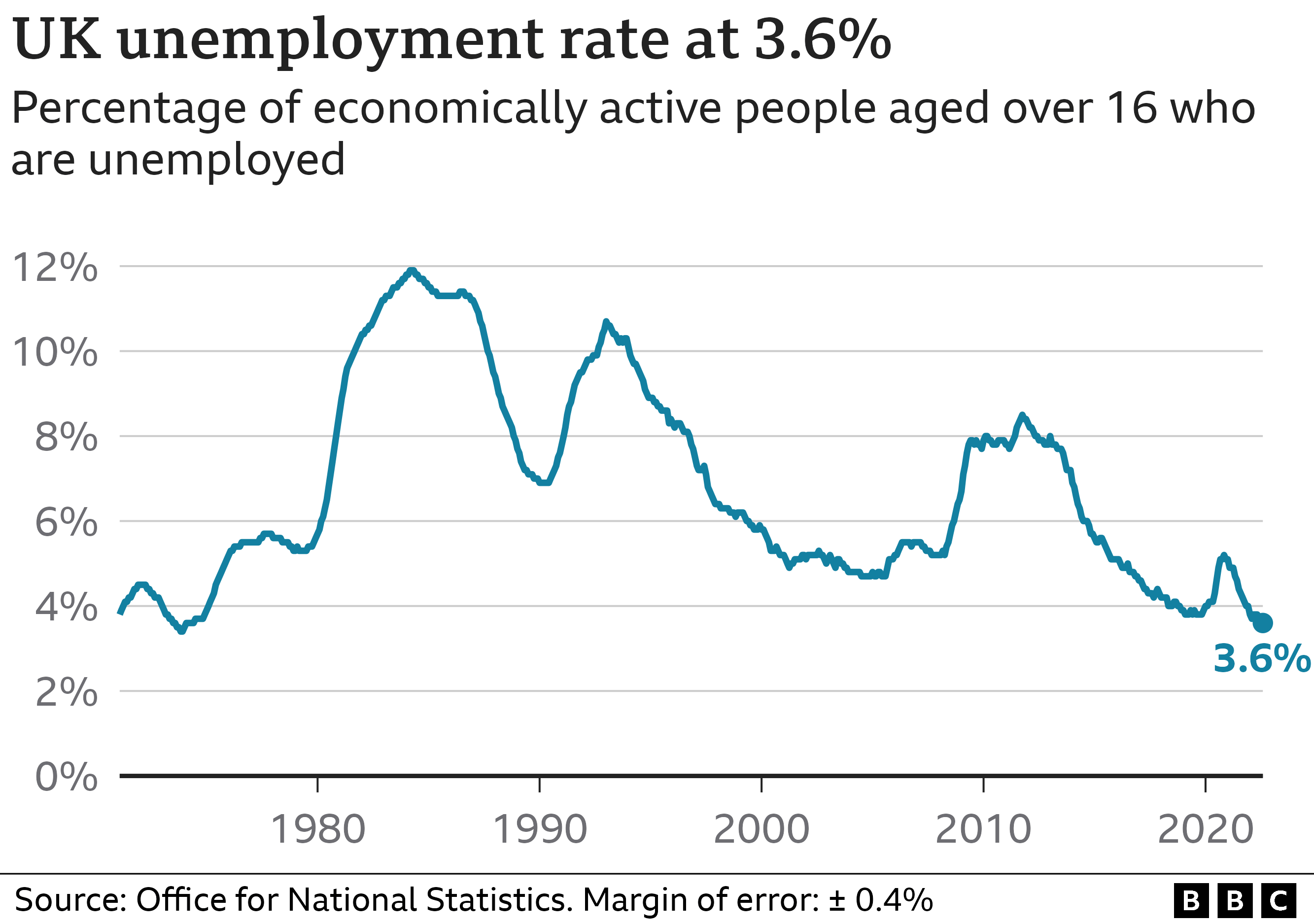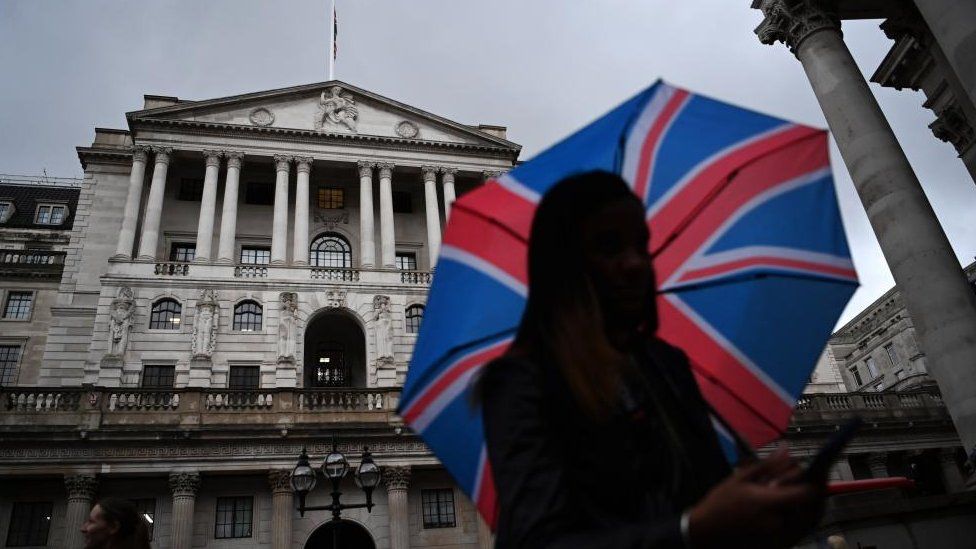
The UK unemployment rate rose slightly to 3.6% in the three months to September, up from 3.5% in August, official figures show.
Pay rose at its fastest rate outside the pandemic but continues to lag behind the cost of living.
When adjusted for rising prices, wages fell by 2.7% in the year to September.
The Bank of England has predicted that the UK is facing its longest recession since records began as inflation soars in part due to the war in Ukraine.
On Thursday, the chancellor will set out his plans to shore up the public finances, with spending cuts and tax rises expected.
Commenting on the latest unemployment figures, Jeremy Hunt said joblessness remained near record lows, but added “people’s hard-earned money isn’t going as far as it should”.
“Tackling inflation is my absolute priority and that guides the difficult decisions on tax and spending we will make on Thursday.”
But Labour’s shadow chancellor, Rachel Reeves, said the UK was paying for “12 years of Tory economic mistakes”.
“Real wages have fallen again, thousands of over-50s have left the labour market and a record number of people are out of work because they’re stuck on NHS waiting lists or they’re not getting proper employment support.”
The Office for National Statistics (ONS) said the proportion of people neither working nor looking for work rose again, in the three months to September.

Older workers continued to leave the labour market, the ONS said, with the number of people classed as long-term sick increasing to a fresh record in the quarter.
“However, in the most recent quarter the main contribution has actually come from younger groups,” added Darren Morgan, director of labour and economic statistics at the ONS.
“August and September saw well over half a million working days lost to strikes, the highest two-month total in more than a decade, with the vast majority coming from the transport and communications sectors.”
He added: “With real earnings continuing to fall, it’s not surprising that employers we survey are telling us most disputes are about pay.”


